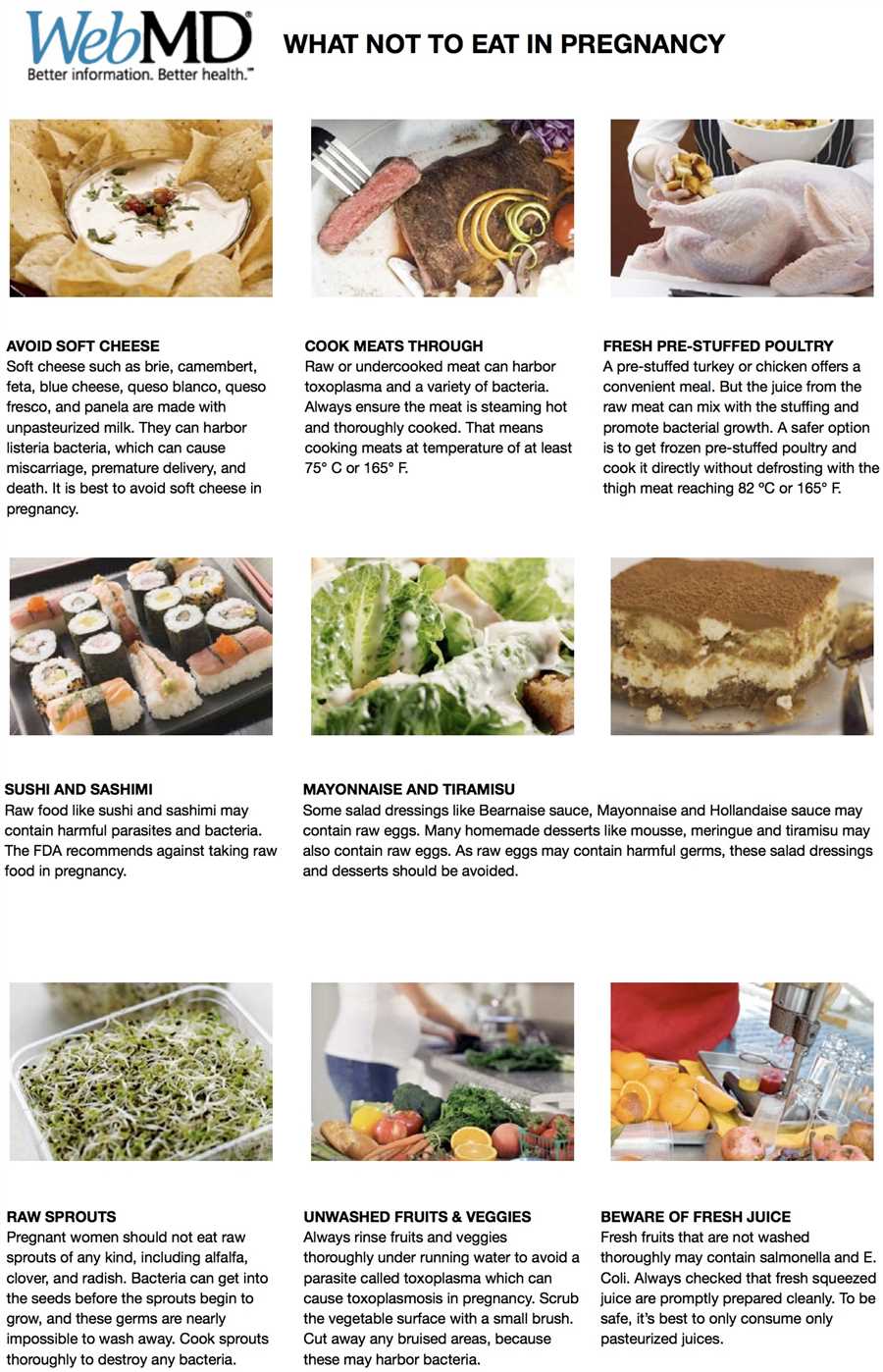

When you’re pregnant, it’s only natural to question what foods are safe to eat. Feta, a type of soft cheese made from sheep’s milk, is a popular choice among many cheese lovers. However, due to concerns about listeria, a type of bacteria that can be harmful to pregnant women and their developing babies, it’s important to know whether it’s safe to consume cooked feta during pregnancy.
The good news is, cooked feta is generally considered safe to eat during pregnancy. Cooking feta at high temperatures kills any potential harmful bacteria, including listeria. This means that when feta is thoroughly heated, it can be a part of a healthy and balanced diet for expectant mothers.
However, it’s important to note that not all forms of feta are safe to consume during pregnancy. Raw or unpasteurized feta, which is commonly found in some Mediterranean cuisines, may still contain harmful bacteria and should be avoided. It’s always best to choose feta made from pasteurized milk and to ensure that it’s thoroughly cooked before consumption.
In conclusion, if you’re craving the tangy and salty flavors of feta during pregnancy, opt for cooked feta that is made from pasteurized milk. Whether it’s sprinkled on top of a delicious pizza, melted into a warm and comforting dip, or added to a nourishing salad, cooked feta can be a safe and enjoyable addition to your meals while pregnant.
Can You Eat Cooked Feta When Pregnant?

When it comes to pregnancy, it is essential to pay attention to your diet to ensure the health and well-being of both you and your baby. One food item that often comes into question is feta cheese. Feta is known for its rich and tangy flavor, which makes it a popular choice in many culinary dishes. However, feta cheese is also known to be made from unpasteurized milk, which can potentially pose a risk to pregnant women.
Is Feta Safe to Eat During Pregnancy?
The answer to this question is both yes and no. While feta cheese made from pasteurized milk is considered safe to eat during pregnancy, feta made from unpasteurized milk should be avoided. Unpasteurized cheeses, including feta, can contain harmful bacteria such as Listeria, which can lead to foodborne illnesses like listeriosis.
Listeriosis can be particularly dangerous during pregnancy as it can cause miscarriage, stillbirth, premature delivery, or severe illness in newborns. Pregnant women are at a higher risk of contracting listeriosis due to changes in their immune systems.
Can You Eat Cooked Feta When Pregnant?
When it comes to cooked feta, the risk of listeriosis is significantly reduced. Cooking feta cheese thoroughly kills off any harmful bacteria that may be present. Therefore, if you are pregnant and craving feta, it is safe to consume it as long as it is cooked thoroughly.
However, it is still essential to ensure that the feta is made from pasteurized milk. By checking the label or confirming with the food establishment, you can make sure that the feta you are consuming is safe for you and your baby.
In conclusion, while unpasteurized feta cheese should be avoided during pregnancy, cooked feta made from pasteurized milk is considered safe to eat. Nevertheless, it is always recommended to consult with your healthcare provider or a registered dietitian for personalized advice and guidance regarding your pregnancy diet.
Guidelines for Eating Feta Cheese during Pregnancy
During pregnancy, it’s important to be mindful of the foods you eat to ensure the health and safety of both you and your baby. Feta cheese is a popular choice, but there are certain guidelines you should follow when consuming it to reduce the risk of foodborne illnesses.
1. Look for pasteurized feta cheese: It is recommended to choose feta cheese that is made from pasteurized milk. Pasteurization helps eliminate harmful bacteria, such as Listeria, which can be harmful to both you and your baby.
2. Check the label: Before purchasing feta cheese, make sure to read the label carefully. Look for the words “pasteurized” or “made from pasteurized milk” to ensure that the cheese has undergone the necessary process to eliminate harmful bacteria.
3. Avoid soft or unpasteurized feta cheese: Soft or unpasteurized feta cheese can contain higher levels of Listeria, which can lead to foodborne illnesses. It’s best to avoid these types of feta cheese during pregnancy to minimize any potential risks.
4. Cooked feta cheese is safe: If you’re unsure about the safety of feta cheese, you can opt to cook it. Cooking feta cheese thoroughly can help eliminate any harmful bacteria, making it safe to consume during pregnancy.
5. Practice safe food handling: When handling feta cheese, make sure to wash your hands thoroughly before and after. Clean all utensils and surfaces that come into contact with the cheese to prevent cross-contamination. Store feta cheese properly in the refrigerator at or below 40°F (4°C).
By following these guidelines, you can enjoy feta cheese during pregnancy while minimizing the potential risks. Remember, it’s always best to consult with your healthcare provider or a registered dietitian for personalized advice based on your specific needs and circumstances.
The Risks of Consuming Raw Feta Cheese

Consuming raw feta cheese during pregnancy can pose potential risks to both the mother and the unborn baby. Raw feta cheese is typically made from unpasteurized milk, which means that it has not undergone the process of heating it to kill any harmful bacteria present.
Bacterial Infections
Raw feta cheese can contain bacteria such as Listeria monocytogenes, which can lead to a type of foodborne infection called listeriosis. Listeriosis can be particularly dangerous during pregnancy as it can cross the placenta and infect the baby, potentially leading to severe complications, such as miscarriage, stillbirth, premature birth, or life-threatening infections in the newborn.
Furthermore, pregnant women are more susceptible to listeriosis due to hormonal changes that affect the immune system. Symptoms of listeriosis may include fever, muscle aches, nausea, diarrhea, and headache.
Toxoplasmosis
Another risk associated with consuming raw feta cheese is the possibility of contracting toxoplasmosis. Toxoplasmosis is an infection caused by the Toxoplasma gondii parasite, which can be present in raw or undercooked meats, as well as unpasteurized dairy products like feta cheese.
If a pregnant woman becomes infected with toxoplasmosis, it can be passed to the baby through the placenta and may cause serious health problems, including hearing loss, intellectual disabilities, and vision problems in the child.
To reduce the risk of contracting bacterial infections or toxoplasmosis, pregnant women are advised to consume only pasteurized feta cheese. Pasteurization is a process that involves heating the cheese to a specific temperature to kill any harmful bacteria and parasites.
In conclusion, it is important for pregnant women to be aware of the risks associated with consuming raw feta cheese. By opting for pasteurized feta cheese, they can ensure the safety of both themselves and their unborn baby.
Safe Ways to Consume Feta Cheese while Pregnant
Introduction:
Pregnancy can bring about a myriad of dietary restrictions, and feta cheese often falls into the category of foods to avoid. However, not all feta cheese is off-limits during pregnancy. By taking certain precautions and following safe consumption practices, you can still enjoy feta cheese without compromising your health or the health of your unborn child.
1. Check the Label:
When purchasing feta cheese, make sure to read the label carefully. Look for products made from pasteurized milk, as they are considered safe for pregnant women. Pasteurization kills harmful bacteria, making the cheese safe to consume. Avoid any feta cheese made from unpasteurized or raw milk.
2. Cooked Feta:
One way to enjoy feta cheese during pregnancy is to opt for cooked feta. Heat destroys potentially harmful bacteria, making it safe for consumption. You can incorporate cooked feta into various dishes such as pasta, quiches, or casseroles. Just be sure to heat the feta cheese until it is thoroughly cooked.
3. Moderation is Key:
Even though cooked feta or pasteurized feta is considered safe, pregnant women should still consume it in moderation. Feta cheese is generally high in sodium and fat, so it is important to consume it as part of a balanced diet. Modest portions will help ensure that you receive the necessary nutrients without overindulging or jeopardizing your health.
4. Fresh is Best:
Choose freshly made feta cheese from a reputable source whenever possible. The longer feta cheese is stored, the higher the risk of bacterial growth. Opt for recently prepared feta and store it properly to maintain its quality and safety.
5. Consult Your Doctor:
As with any food-related concerns during pregnancy, it is always best to consult your doctor or healthcare provider for personalized advice. They can provide guidance based on your unique health situation and help ensure that your diet is safe and appropriate for you and your baby.
To conclude, pregnant women can enjoy feta cheese by choosing pasteurized and cooked varieties. Following safe consumption practices, such as checking labels, consuming in moderation, opting for fresh cheese, and consulting with a healthcare provider, will help ensure a healthy and enjoyable culinary experience during pregnancy.
Questions and answers
Can I eat cooked feta when I am pregnant?
Yes, you can eat cooked feta when you are pregnant. Cooking feta cheese kills any potentially harmful bacteria, making it safe to consume during pregnancy.
Is it safe to eat cooked feta cheese during pregnancy?
Yes, it is safe to eat cooked feta cheese during pregnancy. Cooking feta cheese eliminates the risk of any harmful bacteria, making it a safe choice for pregnant women.
What are the risks of eating uncooked feta cheese while pregnant?
Eating uncooked feta cheese during pregnancy can pose a risk of foodborne illnesses caused by bacteria such as listeria. It is best to avoid uncooked or unpasteurized cheeses during pregnancy to reduce the risk of complications.
Can I include cooked feta in my pregnancy diet?
Yes, you can include cooked feta in your pregnancy diet. Cooking feta cheese thoroughly ensures that any potential bacteria are killed, making it a safe and nutritious choice for pregnant women.
What are some safe ways to enjoy cooked feta during pregnancy?
There are many safe ways to enjoy cooked feta during pregnancy. You can incorporate it into dishes such as baked pasta, stuffed chicken breasts, or roasted vegetables. Just make sure to cook the feta cheese thoroughly to eliminate any potential risk of harmful bacteria.
Is it safe to eat cooked feta during pregnancy?
Yes, it is generally safe to eat cooked feta during pregnancy. Cooking feta cheese can kill any potential harmful bacteria, making it safe to consume. However, it is important to ensure that the feta is properly cooked to eliminate any risks.
Why is it important to cook feta when pregnant?
It is important to cook feta when pregnant because feta cheese, like other soft cheeses, can potentially be contaminated with harmful bacteria such as Listeria. These bacteria can cause serious problems for both the mother and the baby, such as infections and miscarriage. Cooking feta thoroughly helps to eliminate any risks associated with these bacteria.






